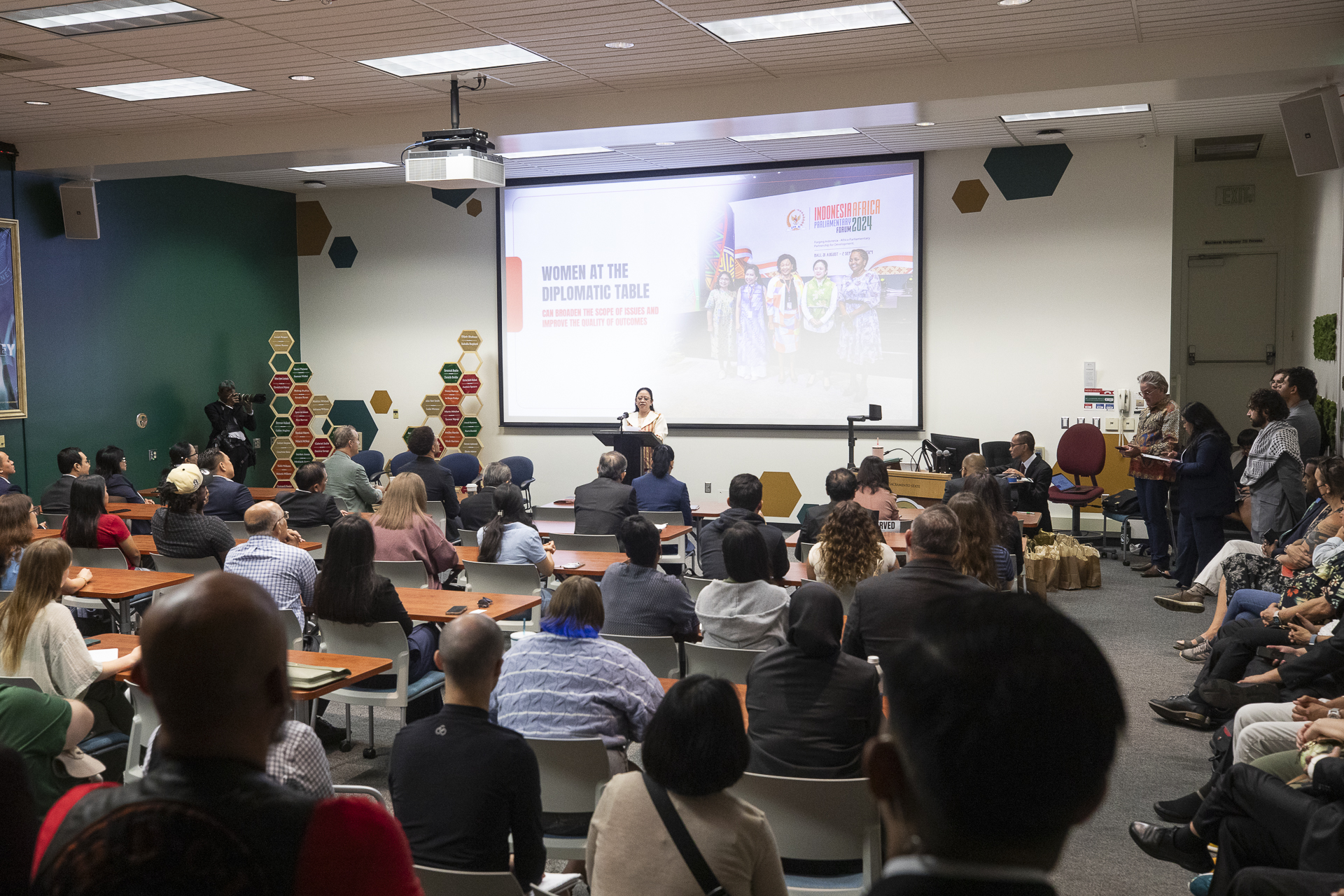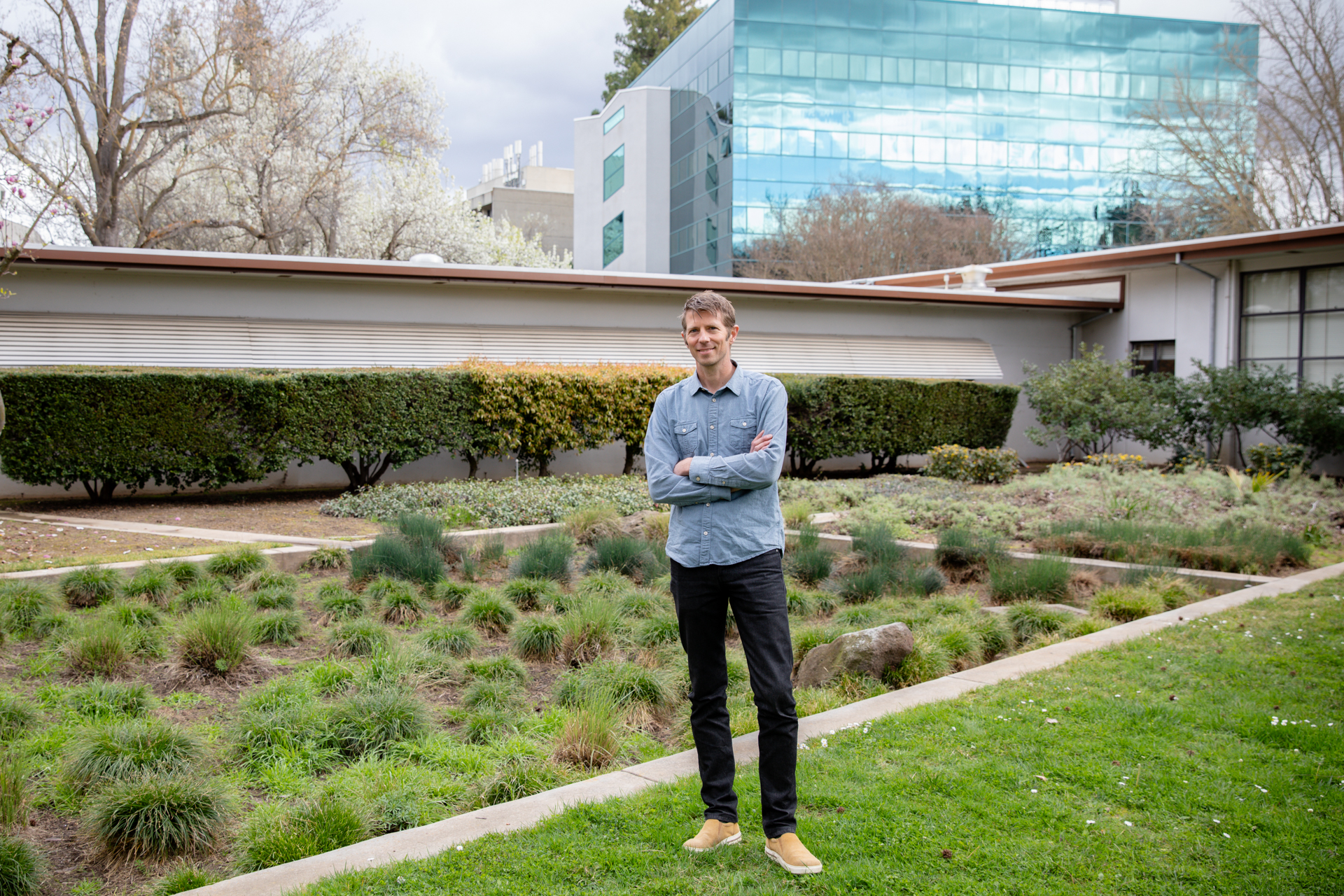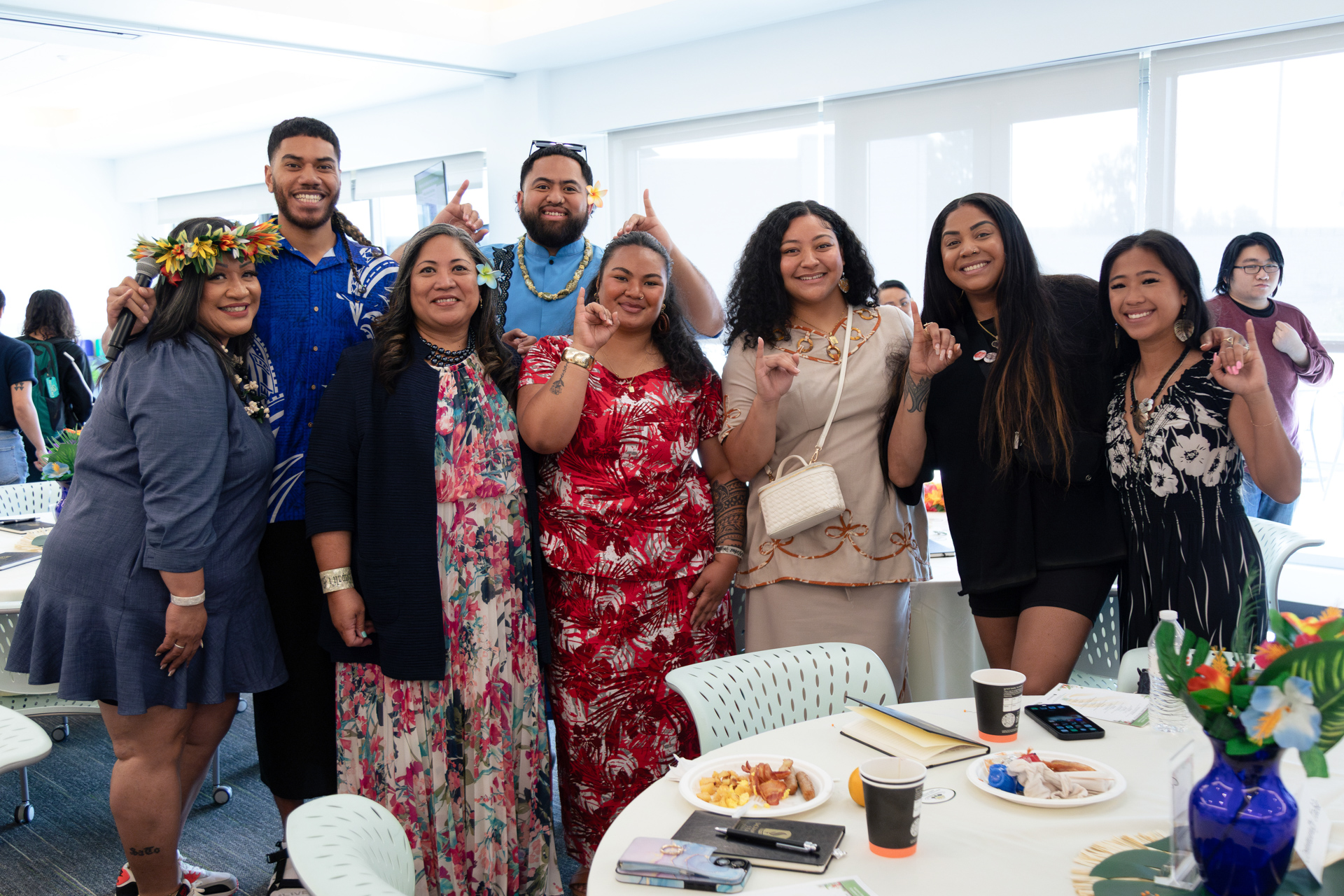Story Content
In underserved neighborhoods, Sacramento State is bridging the “digital divide” and transforming lives
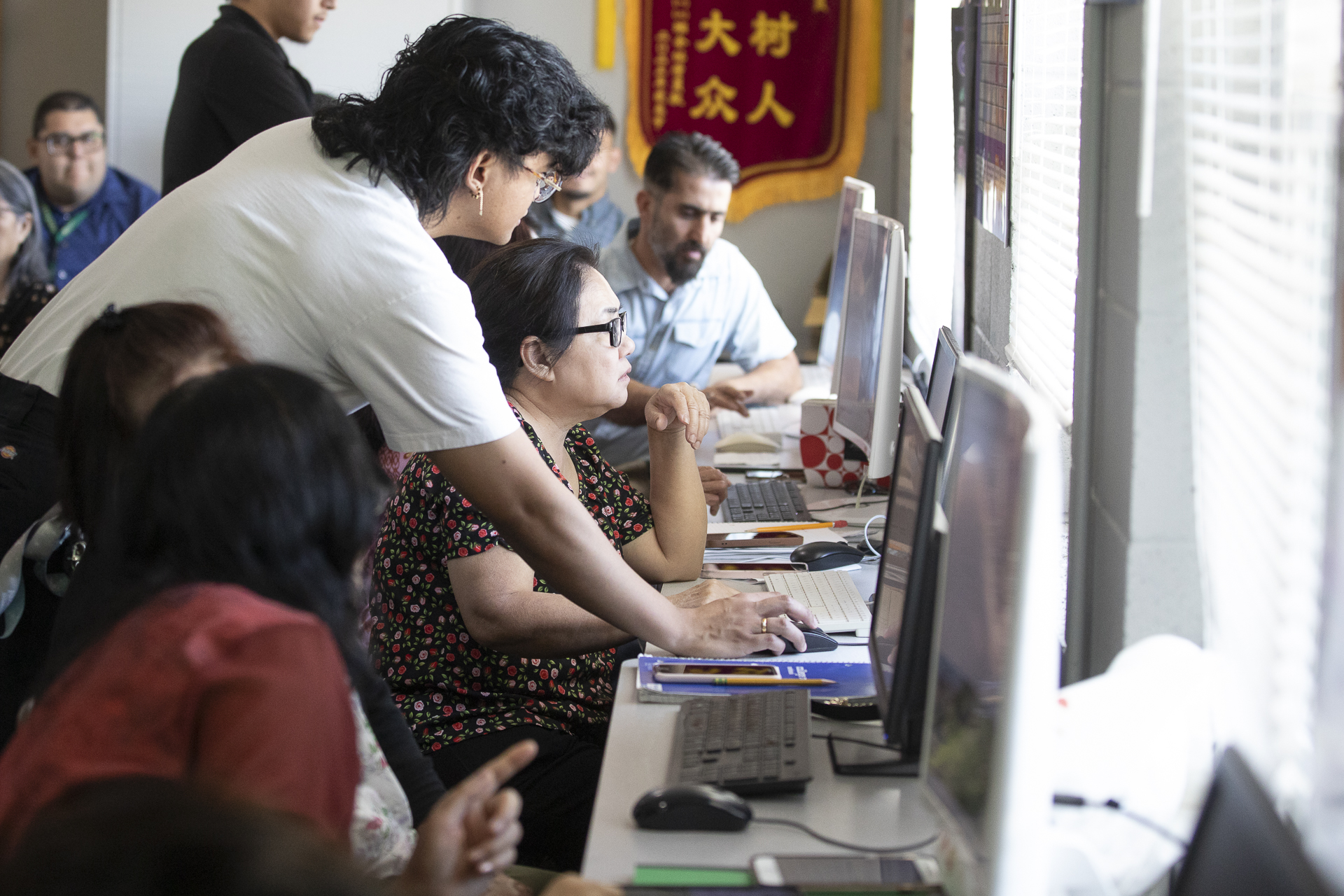
June 26, 2025
Before he attended a free class led by Sacramento State “digital navigators,” Leonard Zhong knew very little about artificial intelligence and how it might play a role in improving his life.
Now Zhong, a retiree who lives in South Sacramento, can add ChatGPT AI to a growing list of computer skills he has been learning with help from Sac State students and faculty.
With a nearly $3 million grant from the National Telecommunications and Information Administration, the University is coordinating a project to help bridge the “digital divide” that has left many people in underserved areas lacking computer skills and technology.
A recent class at Asian Resources Inc., a community group based in Sacramento’s Lemon Hill neighborhood, was the latest outreach effort for the project, called the Connecting Minority Communities pilot program. There, Sac State student Rey Halili addressed an enthusiastic group of about 20, including Zhong.
Halili explained to attendees that they would be receiving “a lightweight introduction” to AI.
“It’s like searching the web, but better,” he said. “ChatGPT will talk to you specifically. It’s very personal.”
(Story continues below the image.)
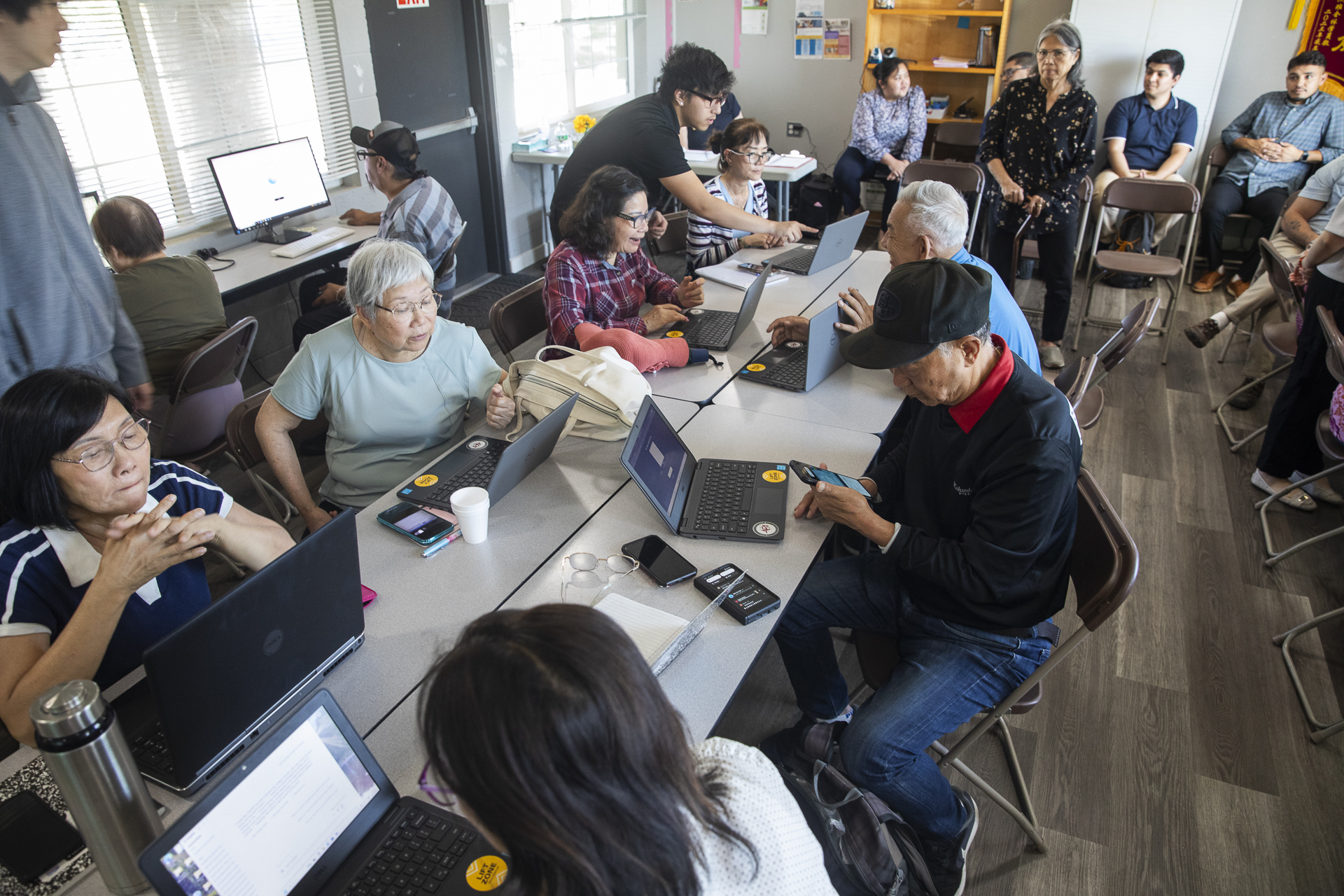
Within minutes, Halili’s audience members were learning how to use AI to research jobs, find locations of medical clinics and save money on groceries. Participants, most of whom speak English as a second language, learned they could ask questions and receive answers in their native tongues. Along the way, they practiced basic computer shortcuts and became familiar with internet jargon.
Sac State is overseeing the digital equity project with regional partners Sacramento City College, Valley Vision, United Way and the California Emerging Technology Fund. The University is collaborating with community groups including Asian Resources Inc., La Familia, Mutual Housing California, the Boys and Girls Club and others to bring information and resources to people in the neighborhoods where they live.
Studies have shown that communities with lower incomes and education levels, such as Lemon Hill, are more likely to be without the devices and skills needed to bring them fully into the digital age.
“By empowering individuals with these essential skills, we aim to improve their lives and open doors to better career opportunities,” said Guillermo Duran, project management analyst for the Connecting Minority Communities pilot program. Duran represents Sac State on the Sacramento Regional Consortium for Digital Equity.
Many residents of Lemon Hill worked jobs in the service industry prior to COVID-19, Duran said. When the pandemic struck, “they lost their ability to put bread on the table,” he said. Spotty internet service and a lack of technology complicated their efforts to land new jobs.
“Most of these individuals have internet access through their phones. But for the ones that don’t have access at home, the program provides information on how to sign up for lower cost connectivity,” Duran said.
In addition to the classes, Sacramento City College has established a Community Engagement Lab on its campus that provides neighborhood organizations and other participating groups access to broadband internet, computers and computer training.
“It’s very beneficial for them. A lot of them are seniors. They’re always looking for something to do and are very interested in learning new things. We are so happy to be able to work with Sac State on this.” -- Zong Vue, assistant program manager for Asian Resources Inc.
In the future, the Sac State hopes to expand the digital equity program to neighborhoods beyond Lemon Hill, said Duran.
“We are helping people with little or no digital experience to gain more knowledge,” he said. “We want them to get to the next level using computers to make their lives better.”
During the past two years, Sac State has trained about 75 student digital navigators, who conduct computer classes at neighborhood centers. Ultimately, they hope to serve thousands of area residents.
Zong Vue, assistant program manager for Asian Resources Inc., said the sessions are invaluable to her clients.
“It’s very beneficial for them,” said Vue. “A lot of them are seniors. They’re always looking for something to do and are very interested in learning new things. We are so happy to be able to work with Sac State on this.”
At the recent session at Asian Resources Inc., Halili and four other navigators roamed the classroom, helping participants of all experience levels log onto their computers and explore AI applications. The music of various languages, including Chinese and Vietnamese, filled the air.
Zhong was among the most active participants, asking questions and gleefully taking pride in his newly acquired skills.
“I find that learning computer skills is becoming more and more important, and I want to keep up,” he said.
“I’m learning new things, and I want to learn more.”
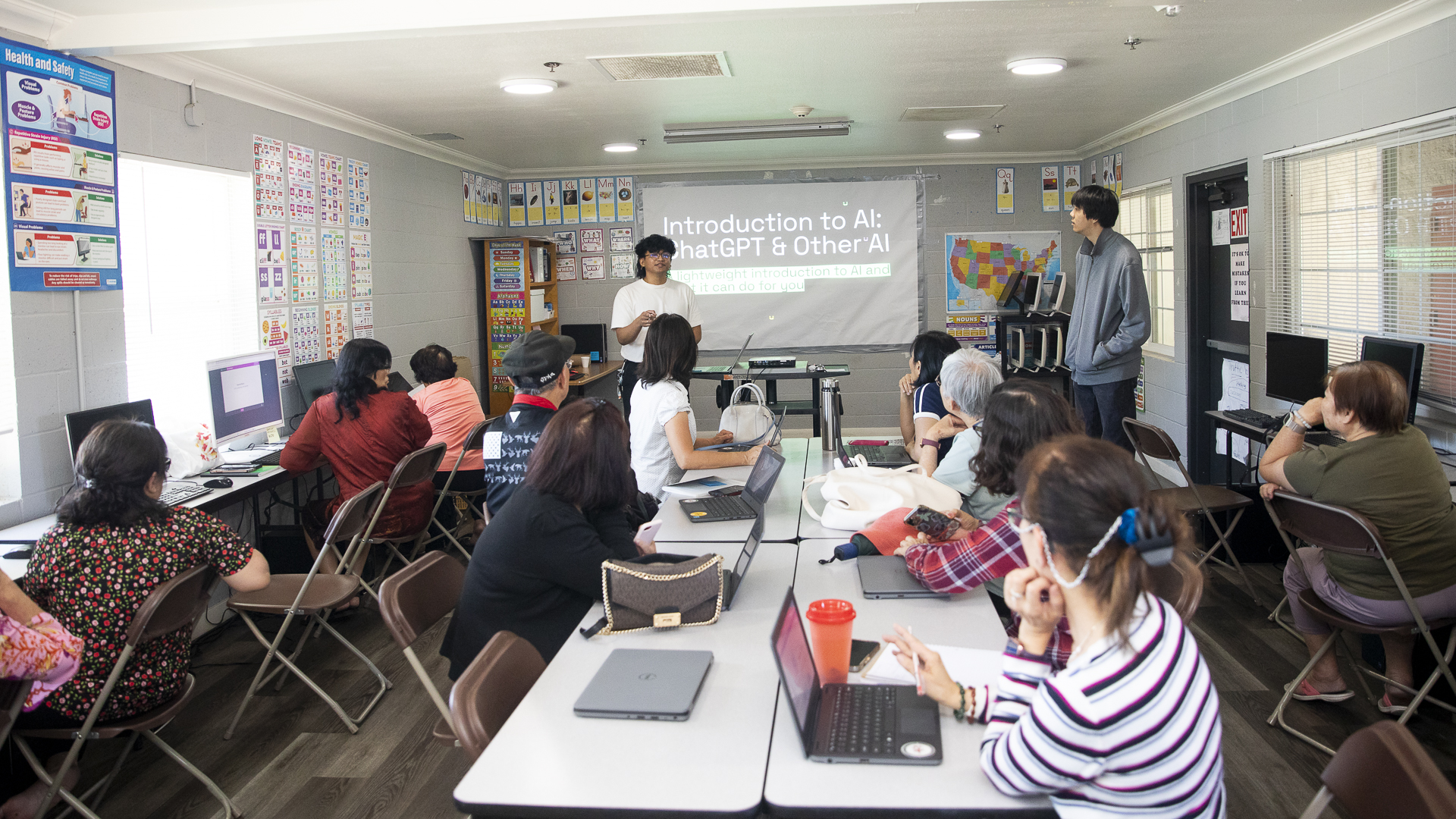
Editor's Pick
Media Resources
Faculty/Staff Resources
Looking for a Faculty Expert?
Contact University Communications
(916) 217-8366
communications@csus.edu
